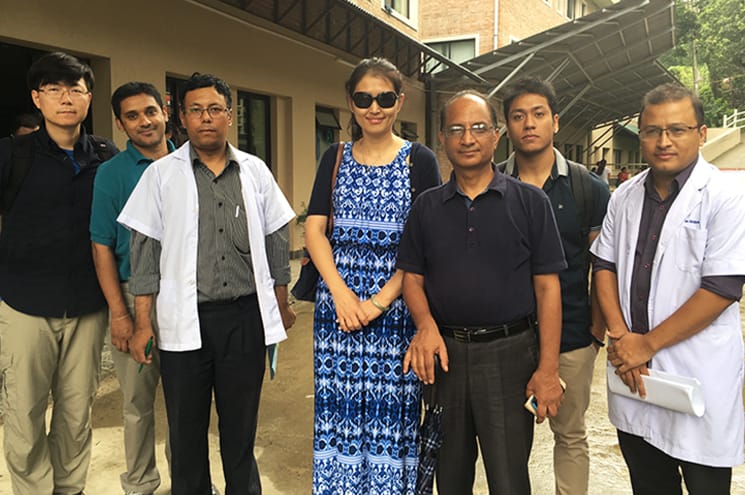Elevating Education: CISAT Professor Yan Li Tests Tech That Delivers Medical Content to Developing Countries

Although becoming a doctor, nurse, or health care professional requires years of schooling, earning a degree, license, or certification is just the beginning. An effective medical education spans a career.
But in the hard-to-reach villages and rugged altitudes of the Himalayas, keeping current with the latest medical developments can pose a challenge as imposing as climbing Everest: overcoming limited internet infrastructure and access.
The Center for Information Systems & Technology (CISAT) is developing solutions that could overcome this challenge in Nepal and elsewhere. CISAT Professor Yan Li and her students are testing new methods of delivering continuing medical education (CME) content—digital publications, programs, audio, video, and other forms of electronic materials that are designed to help medical professionals better serve patients and improve their practice.
The methods include the use of a flash drive-like device as well as a cloud-based platform that allows individuals to access content through mobile devices.
“CME development in Nepal faces the greatest challenge because resources are extremely limited and infrastructure for the delivery of health care is fragile,” said Li, who previously worked on a project to provide educational content without internet access to poor children in Haiti.
The Nepal project began to take root after Li heard from a retired doctor who periodically works in Nepal about the hurdles faced by physicians there—particularly those practicing in the most remote regions. Nepal is one of the poorest and least developed countries in the world. In addition, because doctors are not mandated to continue their education, severe disparities in medical practices exist.
After recruiting students, securing a content provider, forging partnerships, and establishing contact with Nepalese officials, Li and students came up with two solutions: The first was dubbed Continuing Medical Education on a Stick (CMES), a USB drive on a lanyard that functions like a super-small computer—it only needs to be plugged into a desktop to display its content on a monitor and can be updated when internet access is available. A more advanced solution is called CMES-Pi, a cloud-based, offline delivery system that allows medical professionals to access constantly updated content via mobile devices without consistent internet connectivity.
This past June, Li and others helped with the installation of CMES-Pi at a hospital situated 12,600 feet above sea level in the village of Kunde, Nepal, that serves an estimated 8,000 patients. A total of 12 hospitals and one medical college in Nepal are participating, and the idea (see cmesworld.org) may be applied to other underdeveloped countries in Africa and Latin America.
“We are using technology to make other people’s lives better,” Li said.